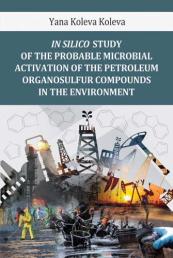Количка
In Silico Study of the Probable Microbial Activation of the Petroleum Organosulfur Compounds in the Environment
The sulfur is the third most abundant element after carbon and hydrogen and can exist as inorganic and organic sulfur compounds in petroleum. The organic sulfur compounds can be heterocyclics and non-heterocyclics in petroleum. They cause serious health problems and pollution in the environment, which requires regulators to set limits on their levels in fuels and to study their toxicological behavior.
In the present study, forty-five organosulfur compounds were selected to cover their maximum structural diversity. It is well known that some of them will cause environmental and health problems but they cannot be studied on a case by case basis because it is time consuming and cost prohibitive. In order to overcome this problem, a lot of theoretical methods allowing the prediction of the fate of organic compounds in the environment from their molecular properties were developed. In Silico methods (QSAR Toolbox and CompTox Chemistry Dashboard) have been used to study their behavior in the environment. The availability of experimental fate data of the organosulfur compounds is limited, then the probable fate of the parent structures of organosulfur compounds was predicted by the CompTox Chemistry Dashboard for five properties. The acute toxicity of parental structures and possible microbial metabolites of organosulfur compounds was predicted by the QSAR Toolbox.
The study showed that the parent structures of organosulfur compounds have a narcotic effect, while their probable microbial metabolites would show some reactivity (acute toxicity). The possible microbial activation of the organic sulfur compounds and the possible reactivity of the generated microbial metabolites to DNA and protein were assessed using alternative (in silico) methods (QSAR Toolbox). Some of the generated microbial metabolites can act as an electrophile (structural alert) to DNA and protein in different mechanistic domains. Therefore, petroleum organosulfur compounds, under appropriate favorable conditions, would have a detrimental effect on the environment.
----------------







